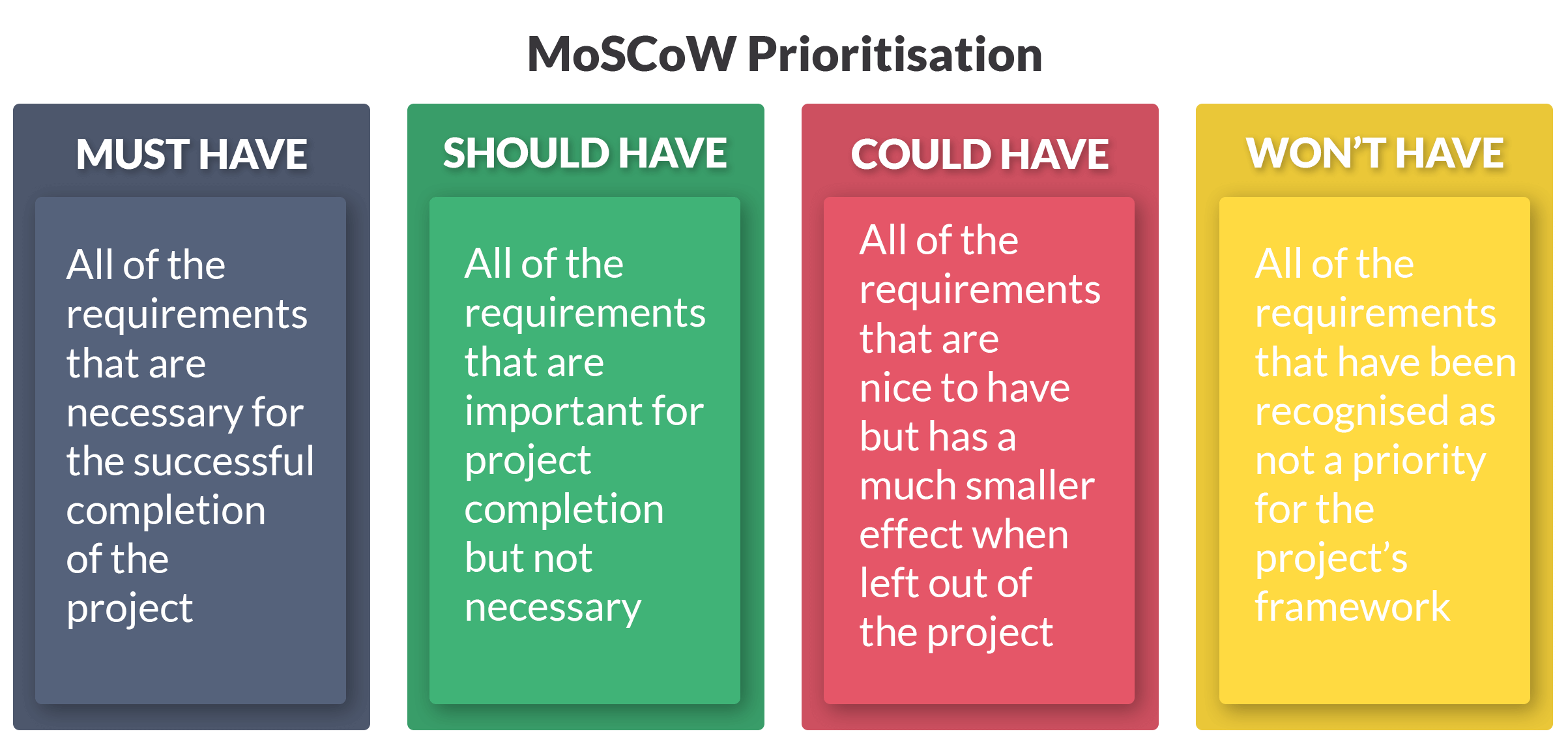News & Blog
What is MoSCoW and why is it so useful in a project?
I’ve been in the fortunate position recently of bumping into past delegates from my project management courses. When this happens, if I can possibly wangle it into the conversation, I ask them which of the many taught techniques they found the most useful. The answer is usually MoSCoW.
MoSCoW stands for ‘Must have’, ‘Should have’, ‘Could have’ and ‘Won’t have this time’ - and it is used to help us prioritise the work we have to complete when we are constrained by time or cost. I use it all the time, even to decide what jobs to complete at the weekend.

My husband and I have a long list of tasks that we want to get done at some point. We know that we won’t get it all done in one weekend, so treat the weekend as a two-day timebox.
Our ‘to do’ list frequently holds things like:
- Mow the lawn
- Do the laundry
- Go for a walk
- Buy food for our BBQ on Sunday
- Clear out the shed
- Bake a cake for the BBQ
- Rest!
I’m quite houseproud, but mowing the lawn is frequently a ‘Won’t have this time’ priority because I can do it the next weekend or maybe one evening after work. Other tasks like doing the laundry ‘Must’ be completed before Monday because otherwise we run out of clean clothes.
How do I work out which project requirements will provide the best return on investment (ROI)?
It is useful to prioritise your activities in case you don’t have enough time or money to complete them all. And the priorities will change depending on other factors. For example, if we are having guests joining us for a BBQ then mowing the lawn becomes a ‘Should have’ priority – if we don’t have time to complete that task then we won’t cancel the BBQ, but it would be highly desirable to get it done.
Buying food for the BBQ is a ‘Must have’ priority, but if we don’t have time or the ingredients to bake a cake then I’m not going to worry too much. That’s a ‘Could have’ priority, something that is nice to have but not essential. I could buy a cake instead.
I bet you are reading this thinking that you are using MoSCoW prioritisation all the time but didn’t know it had a name. You might also be thinking that I’m a bit of a nerd, prioritising my weekend activities. Should I admit that we used Post-It Notes stuck on our dining room wall to do this? There are some great free apps available too; we’ve now graduated to using Trello, for example.
The benefit of formalising this in a project situation is that it forces the team to have a conversation with the client about what is truly essential and what can be adapted or descoped if necessary. Agreeing all of this in advance will reduce stress during the project and your client is more likely to get something useful delivered on time and on budget.
If you'd like to learn more about MoSCoW and other techniques to plan your projects more effectively join our next PRINCE2 Agile® course or Agile Project Management (AgilePM) course.
Author: Sue Hopgood, Senior Project Management Lecturer
You are using MoSCoW prioritisation all the time but didn’t know it had a name
Discover our other posts by category:
- Apprenticeships (3 posts)
- Armed Forces (7 posts)
- Company News (20 posts)
- Construction (7 posts)
- Courses (10 posts)
- Covid-19 (4 posts)
- Cyber and IT (4 posts)
- eLearning (6 posts)
- Engineering (2 posts)
- Events (4 posts)
- Exams (2 posts)
- Gamification (4 posts)
- Gas (1 post)
- Health and Safety (5 posts)
- ITIL (10 posts)
- Project
Management (21 posts) - Scaffolding (1 post)
- Technology (12 posts)
- Training Strategy (8 posts)